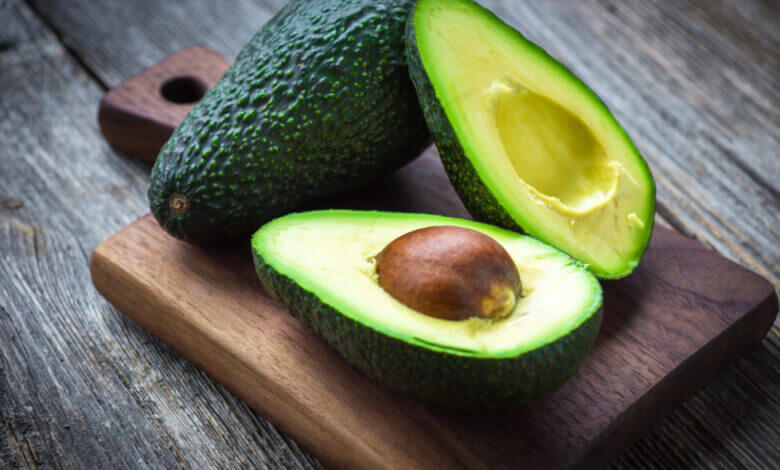How many Calories in an Avocado?

Avocado is a fruit that has gained widespread popularity due to its rich and creamy texture, unique flavor, and various health benefits. It is a nutrient-dense food with healthy fats, fiber, vitamins, and minerals. One of the most commonly asked questions about avocados is how many calories they contain.
In this article, we will explore the calorie content of avocados in detail, including their nutritional profile, health benefits, and some delicious recipes.
Related article:
What are the Symptoms of Asbestos?
Nutritional Profile of Avocados
Avocado is a nutrient-dense food packed with various essential vitamins and minerals. One medium-sized avocado weighing approximately 150 grams contains around 240-250 calories. It also has 21 grams of fat, 12 grams of carbohydrates, and 3 grams of protein. Most of the fat content in avocados is monounsaturated and polyunsaturated fats, considered healthy fats that can help lower cholesterol levels and reduce the risk of heart disease.
Avocados are also a good source of dietary fiber, essential for maintaining digestive health and promoting regular bowel movements. They are also rich in vitamins C, K, B5, B6, and E and minerals such as potassium and magnesium. Calorie Content of an
On average, a medium-sized avocado (150 grams) contains approximately 250 calories. It is worth noting that while avocados are high in calories, they are also high in healthy fats, fiber, vitamins, and minerals. This makes them an excellent addition to a healthy, balanced diet.
Related article:
Avocados are high in monounsaturated and polyunsaturated fats, considered healthy fats. These fats are essential for maintaining healthy cholesterol levels, reducing inflammation, and providing energy. Avocados are an excellent source of fiber, with one medium-sized avocado containing around 10 grams of fiber. In addition, the thread is essential for maintaining good digestive health, reducing the risk of heart disease, and promoting feelings of fullness.
Avocados are a rich source of vitamins and minerals, including vitamins C, K, B6, folate, potassium, and copper. These nutrients are essential for maintaining healthy bones, promoting healthy skin, boosting immunity, and supporting the body’s natural detoxification processes. Eating avocados regularly has been linked to a number of potential health benefits. Here are a few examples:
Studies have shown that including avocados in your diet may help reduce the risk of heart disease. This is likely due to avocados’ high content of healthy fats and fiber, which can help reduce cholesterol levels and lower blood pressure.
Avocados may also benefit people with diabetes, as they have been shown to help regulate blood sugar levels. This is because avocados’ fiber and healthy fats slow down glucose absorption in the bloodstream, which can help prevent blood sugar spikes.
Related article:
What is Astronomy | A Complete Guide
Health Benefits of Avocados
Avocado is considered a superfood due to its many health benefits. Here are some of the most notable benefits:
Avocados are high in healthy fats, such as monounsaturated and polyunsaturated fats, which have been shown to lower LDL (harmful) cholesterol levels and increase HDL (good) cholesterol levels.
The healthy fats in avocados and their high potassium content can help lower blood pressure, reduce the risk of heart disease, and improve overall cardiovascular health.
Despite their relatively high-calorie content, studies have shown that avocados can help with weight management due to their high fiber and healthy fat content, which can promote feelings of fullness and reduce overall calorie intake.
Avocados’ high fiber content can help promote regular bowel movements, prevent constipation, and improve overall digestive health.
Avocado is rich in vitamin E, an antioxidant that can help protect the skin from damage caused by free radicals. It can also improve skin elasticity, prevent wrinkles, and promote overall health.
Related article:
What Personal Injury Lawyers do? Everything you need to know
How to Incorporate Avocados into Your Diet?
Avocado is a versatile food that can be used in various recipes. Here are some simple and delicious ways to incorporate avocados into your diet:
Toast whole-grain bread with mashed avocados, salt, pepper, and other toppings you like, such as tomatoes, cheese, or herbs.
Mix mashed avocado with diced tomatoes, onions, jalapeños, lime juice, salt, and pepper to make a delicious dip served with tortilla chips or used as a topping for tacos or salads.
Add a quarter to a half of an avocado to your favorite smoothie recipe to make it creamier and more satisfying.
Add sliced or diced avocado to your favorite salad to add healthy fats, fiber, and flavor.
Use mashed or sliced avocado as a healthy and flavorful substitute for mayonnaise or other high-fat condiments on sandwiches or burgers.
Related article:
The Ultimate Cfa Level 3 Study Guide
Should I Take Avocados Daily or Not?
Avocados are a nutritious food that can be included in a healthy diet. They are rich in heart-healthy monounsaturated and polyunsaturated fats, fiber, vitamins, and minerals. However, like with any food, consuming avocados in moderation and as part of a balanced diet is essential. If you enjoy avocados, consuming them in moderation can benefit your health. The recommended serving size is about 1/5 of an avocado (or approximately 1 ounce) per day, which provides around 50 calories.
It’s essential to remember that avocados are high in fat and calories, so consuming too much can lead to weight gain. Additionally, some people may be allergic to avocados, so it’s essential to be aware of any potential allergic reactions.
In summary, incorporating avocados as part of a balanced diet in moderation can be a healthy choice, but it’s important to be mindful of portion sizes and any potential allergies.
Related article:
Why should we use a Flywheel in an Engine
What are the Alternatives to Avocados With Equal Calories and Benefits?
Avocado is a popular fruit known for its rich, creamy texture and numerous health benefits. However, if you’re looking for alternatives to avocados that offer similar nutritional benefits and calorie content, there are a few options you can consider.
Edamame is a soybean that is commonly found in Asian cuisine. It’s high in protein, fiber, and various vitamins and minerals, including folate, iron, and magnesium. A half-cup serving of edamame contains around 100 calories, similar to the calorie content of half an avocado. Edamame is also low in fat, making it a good choice for people watching their calorie intake.
Almonds are a type of nut high in healthy fats, protein, and fiber. A quarter-cup almond serving contains around 170 calories, slightly more than half an avocado. However, almonds are rich in vitamin E, magnesium, and potassium, all nutrients essential for overall health.
Chia seeds are a type of seed high in fiber, protein, and healthy fats. A one-ounce serving of chia seeds contains around 140 calories, similar to the calorie content of a quarter of an avocado. Chia seeds are also a good source of calcium, magnesium, and phosphorus, which are important for bone health.
Related article:
President Biden announces Student Loan Relief
Greek yogurt is a type of yogurt that is high in protein and low in fat. A six-ounce serving of It contains around 100 calories, similar to half an avocado’s calorie content. Greek yogurt is also a good source of calcium, which is important for bone health.
Sweet potatoes are a root vegetables high in fiber, vitamins, and minerals. A medium-sized piece of it contains around 100 calories, similar to half an avocado’s calorie content. They are also a good source of vitamin A, which is important for eye health.
Conclusion
Avocado is a highly nutritious food rich in healthy fats, fiber, vitamins, and minerals. While it is relatively high in calories, it can still be incorporated into a healthy diet due to its numerous health benefits.
Related article:






